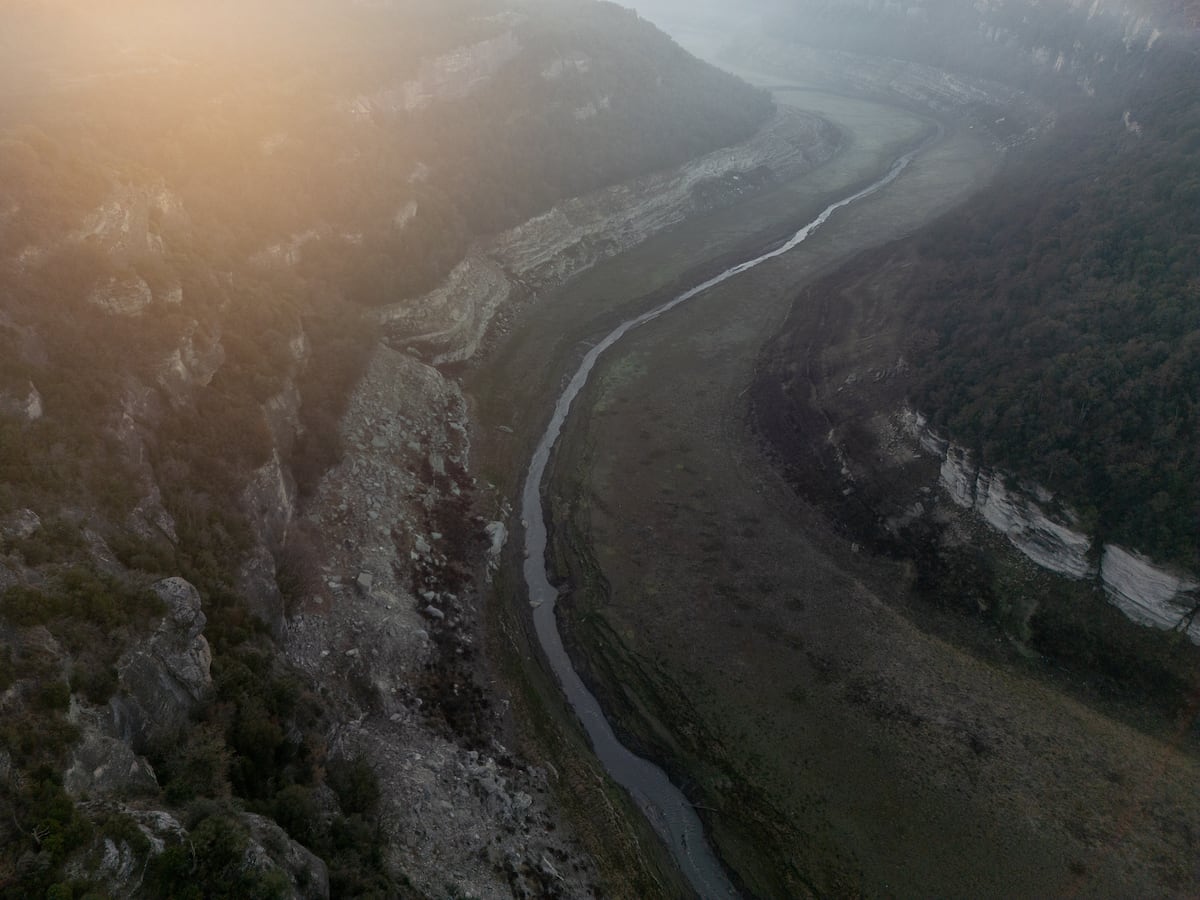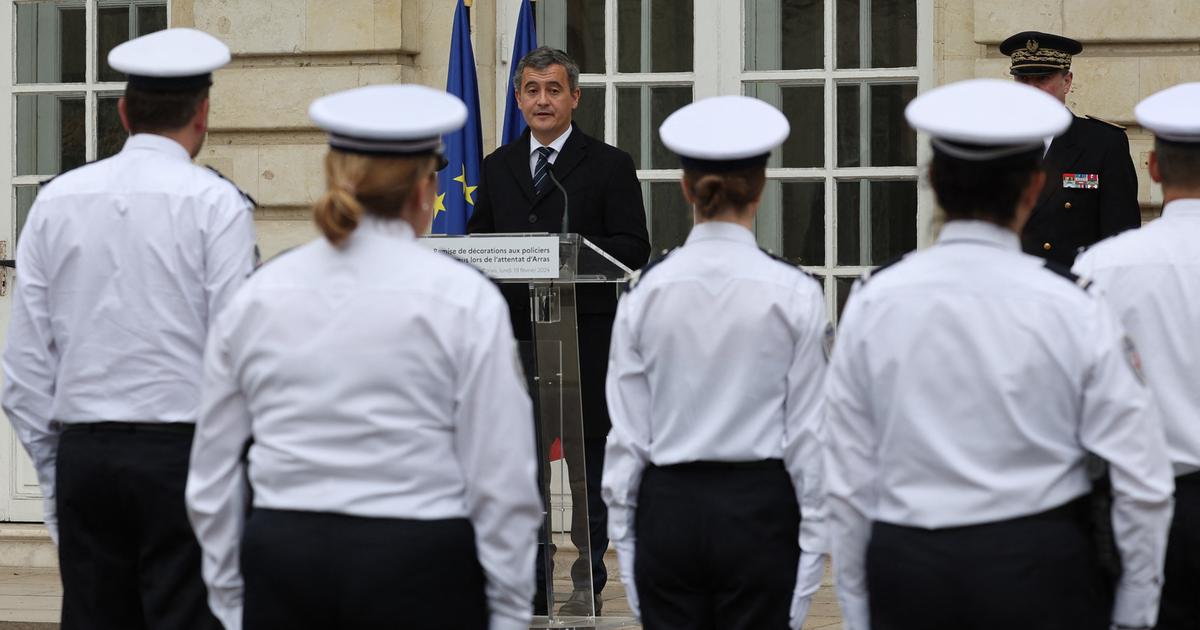A year ago now, in September 2019, demonstrations in nearly 150 countries around the world called for stronger measures to tackle climate change.
One of the most important was that of New York, in whose head was the Swedish activist Greta Thunberg, already converted into a symbol of the outrage of young people at the lack of action of governments to stop the increase in the temperature of the planet.
This global climate strike was a demonstration of the renewed momentum that the response from society and the international community to the climate crisis had taken.
Then came the coronavirus.
The UN warns that greenhouse emissions are heading to pre-covid levels
Citizens chosen by lottery to find solutions to climate change
What happened to the climate emergency six months after the pandemic was declared?
When there are already about 29 million people infected and more than 900,000 dead in the world, obviously the priority for the entire planet is to end the health crisis.
However, the climate challenge is still there.
And, as David Waskow, director of the World Resources Institute (WRI), points out, "for climate change there is no vaccine, we have to act."
Climate emergency in Spain
In Spain, the Council of Ministers declared the Climate and Environmental Emergency on January 21.
Beyond political gestures, the approved declaration included the commitment to adopt 30 lines of action, among which were five measures for the first 100 days of Government: taking the draft Law on Climate Change and Energy Transition to the Courts, defining the long-term decarbonization path of the country with the objective of climate neutrality no later than 2050, present the second National Plan for Adaptation to Climate Change, reinforce the existing participation mechanisms with a citizen assembly on climate change and, finally , promote the transformation of the industrial model and the services sector through just transition agreements.
After more than seven months of that, with a confinement of the population involved and a new economic crisis, from the Ministry for the Ecological Transition and the Demographic Challenge they assure that the work before the climatic emergency "has in no case stopped" .
Of the five priority measures, the commitment of the citizen assembly on climate change has not yet been fulfilled - "we are working on it", they say from the ministry - but progress has been made in the draft of the Climate Change Law - being processed right now in Congress - in the National Adaptation Plan, in the Long-Term Decarbonization Strategy and in the just transition agreements.
Most of this still remains to be closed and the other 25 lines of action are pending.
Even so, from the ministry they affirm that "it is essential that the Climate Change Law be debated and approved as soon as possible, so that it is the legal framework that acts as a lever to activate the rest."
And they defend that some changes can even be accelerated, taking advantage of funds for economic recovery after the coronavirus disaster.
The economic challenge and companies
The pandemic has left the climate emergency in the background, but it has also starkly demonstrated the importance of heeding the warnings of scientists and the vulnerability of our society.
Likewise, the health crisis has also placed climate change at the center of the economic debate.
"We have recovery plans that are going to be the most important in history, and everyone is aware that it really is an opportunity for real changes, such as replacing fossil fuels with renewable more quickly," says Gonzalo Sáenz de Miera, director of Climate Change at Iberdrola and vice president of the Spanish Green Growth Group business association.
“The problem is that the economic crisis caused by the coronavirus is being even more severe than expected and this makes that balance more complicated so that the recovery has short-term effects in terms of employment and investment, and at the same time is consistent with green issues ”.
For Sáenz de Miera, the key issue now is the recovery plan that Spain must present to the EU.
"That is where we are going to see if we bet on a change of model or we want to maintain what there is with short-term effects, the Government says it will continue to bet on green, but there are many pressures and there is a risk that it will yield. to keep rents short ”.
Climate protests
Paradoxically, what has been held back the most by the pandemic in recent months have been the protests demanding much more drastic measures in the face of the climate emergency.
"It has been a
shock
for the whole world and for emerging movements like ours it has been a stop", recognizes Jaime Lara, a member of the Extinction Rebellion (XR) organization.
"Especially for us, that what we defend is to go out and promote civil disobedience, but that we had to stay home and comply with sanitary regulations."
Despite this apparent contradiction, as this climate activist points out: "We are a movement that wants to preserve life."
After the worst of the pandemic has passed, the protests have returned.
Extinction Rebellion has manifested itself in the UK or Poland, but the echo of its actions has not been the same.
"When the covid occupies everything it is difficult to reach the media with our message," she says.
In any case, for this activist, the point is that so far the steps taken by the governments are not up to the climate emergency.
As he explains, the XR organization defends that decarbonization is in 2025 instead of 2050 and that citizens have a much more role in decisions.
International negotiations
Although the coronavirus has spread throughout the world, it has been seen that there are countries that handle the situation better than others and this avoids many problems.
Climate change is much more unfair.
It is of little importance that a State reduces its emissions a lot or generates very few if the rest of the planet does not also react, since greenhouse gases accumulate in the atmosphere as a whole.
In November 2020 a transcendental world summit for the international fight against climate change, COP26, was to be held: this meeting was the deadline for all countries to present more drastic plans to cut their emissions.
However, the pandemic forced this conference to be postponed to 2021.
“On the one hand, it is bad because we need not to lose the pace of the negotiations, the momentum must be maintained.
But for another, it is not the end of the world.
If in the coming weeks or months we have an opportunity to take advantage of the economic recovery plans to hit the reset button, then the delay of COP26 will not be a bad thing.
But countries do not have time for distractions or delays, they must take advantage of this extra time, every minute, "says Rachel Kyte, an expert on climate and international relations and former United Nations envoy, from the US.
As it affects, the pandemic has shown that economies are not resilient in key issues, for this reason he considers that "we must learn the lessons of the crisis caused by COVID to be able to face the climate crisis."
"Unfortunately, there are countries that are moving in the wrong direction, financing fossil fuels in their recovery plans," says the director of the World Resources Institute (WRI).
“In India, for example, they are supporting the restoration of ecosystems, but at the same time activating measures that help the coal sector.
In the United States, the current Administration is supporting the fossil energy sector.
South Korea has taken some steps to separate itself from coal within its country, but then continues to finance coal plants abroad, ”says David Waskow.
The arrival of a vaccine against the coronavirus would also help to relaunch attention in the climate emergency.
While waiting for this, in a few months another crucial event will take place in the fight against climate change: the elections to the US presidency in November.
“We need leaders from around the world to sit at the international table to solve our problems together.
It is not just a question of the United States, there are other countries that are hiding behind the enormous space that Trump occupies and that must be involved in collective solutions, we need multilateralism ”, Kyte emphasizes.
Information about the coronavirus
- Here you can follow the last hour on the evolution of the pandemic
- This is how the coronavirus curve evolves in Spain and in each autonomy
- Download the tracking application for Spain
- Search engine: The new normal by municipalities
- Guide to action against the disease






/cloudfront-eu-central-1.images.arcpublishing.com/prisa/W3IRDIOMUNDRFLIMJQYISDQ2OE.jpg)

